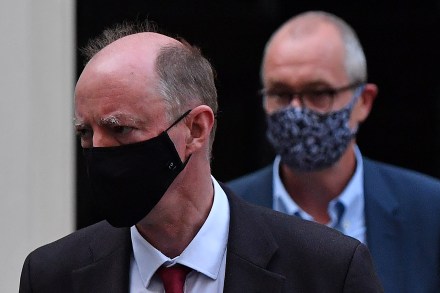Who cares what Harry and Meghan think about Trump?
Well, who can the Duke and Duchess of Sussex have in mind in their video message to Time 100 – for the magazine’s issue on influential people – when they talked about the need to reject ‘hate speech, misinformation and online negativity’ in the context of the US election? There are precisely two possibilities. Do you reckon these things might, just possibly, be code for the president, Donald Trump? In which case – I may of course be wrong here – it looks as if they’re urging people to vote Democrat. As for lovely Meghan’s observation that this is ‘the most important election of our lifetime’ it does seem to




















